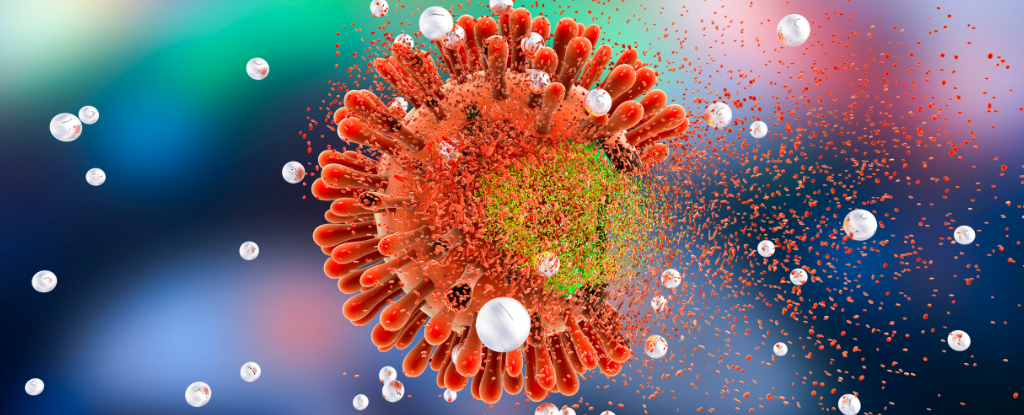ARTICLE AD
The deodorant of the future might be possible thanks to viruses that hunt down stink-making bacteria. Scientists in Japan believe they’ve discovered a chemical weapon sourced from bacteriophages that can target a species of bacteria known for contributing to body odor emitted by our armpits.
What Did Tatiana See at the End of 3 Body Problem?
Our sweat starts out odorless, but when certain skin bacteria start feeding on sweat, they can break down some of its ingredients into foul-smelling chemicals. Researchers at the Osaka Metropolitan University wanted to get a better understanding of how this process occurs and the major players involved.
The team collected armpit sweat samples from 20 healthy men, with samples from 11 men deemed to be especially odorous. The researchers analyzed the community of bacteria living on the skin of these men, also known as the microbiome, as well as the molecular make-up of metabolic byproducts produced by the bacteria. These samples had higher levels of precursor chemicals that eventually turn our bodies rank, along with increased amounts of one particular bacteria, Staphylococcus hominis.
S. hominis is commonly found on our skin and is typically harmless, outside of unusual circumstances like someone having a very weakened immune system. But other research has suggested that these bacteria are an important source of body odor, capable of creating some of the most pungent stenches our pits can emit. Having found more evidence of this bacteria’s involvement in our stink, the researchers next looked for a countermeasure.
They found a lysin—an enzyme that can destroy a bacterium’s cell wall—seen in a bacteriophage known to infect S. hominis, then synthesized it. Much like viruses that infect humans or other hosts, bacteriophages tend to be selective about the bacteria they hunt and hijack to make more of themselves. And sure enough, when they tested the lysin in experiments, they found that it only killed S. hominis and left other bacteria alone. The findings are published this month in the Journal of Investigative Dermatology.
This is only one small study, so more research would be needed to confirm whether the team’s lysin can effectively and safely reduce body odor without any major harmful consequences. But the paper’s authors note that there isn’t much we can do about body odor currently, so they’re hopeful that the work can help scientists one day beat back the stink.
“Axillary [armpit] odors are one of the few dermatological disorders in which bacteria are the primary cause,” said lead author Miki Watanabe, an immunologist and dermatologist at Osaka Metropolitan University, in a statement from the university. “Although many patients suffer from axillary odors, there are few treatment options. We believe that this study will lead to a new therapy.”

 7 months ago
47
7 months ago
47 

